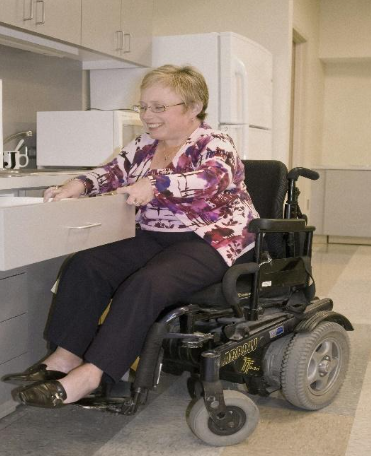NDIS Registered Providers: Ensuring Quality Support for Australians with Disabilities

The National Disability Insurance Scheme (NDIS) is a vital initiative in Australia that provides tailored support and services to individuals with disabilities. Central to the success of this program are NDIS registered providers. These providers play a crucial role in delivering high-quality care and services, ensuring that participants receive the best possible support. What Are NDIS Registered Providers? NDIS registered providers are organizations or individuals officially approved by the NDIS Commission. This registration indicates that they meet stringent standards set by the NDIS, ensuring that the services they offer are of the highest quality. The registration process involves thorough evaluations, including assessments of operational practices and adherence to the NDIS Code of Conduct. Why Choose NDIS Registered Providers? For NDIS participants, selecting a registered provider offers numerous advantages: Guaranteed Quality: NDIS registered providers adhere to the NDIS Practice Standards, ensuring that services are safe, effective, and of high quality. This regulation helps protect participants from receiving substandard care. Enhanced Accountability: The NDIS Commission oversees registered providers, ensuring they comply with regulations and address any complaints or issues promptly. This accountability gives participants peace of mind and recourse if problems arise. Funding Access: Registered providers are eligible to deliver services funded by the NDIS, making it easier for participants to access a range of supports tailored to their needs. Types of Services Offered by NDIS Registered Providers NDIS registered providers offer a broad spectrum of services, including: Personal Care: Assistance with daily living activities such as bathing, dressing, and meal preparation. Therapeutic Services: Access to allied health professionals including physiotherapists, occupational therapists, and speech therapists. Support Coordination: Help with managing and coordinating various supports and services. Community Participation: Programs designed to help individuals engage in social and recreational activities within their communities. How to Choose the Right NDIS Registered Provider When selecting an NDIS registered provider, consider the following: Service Types: Ensure the provider offers services that align with your specific needs. Provider Reputation: Look for feedback from other participants to gauge the provider’s reliability and quality. Alignment with Goals: Choose a provider that understands and supports your personal goals and preferences. Conclusion NDIS registered providers are integral to the success of the National Disability Insurance Scheme in Australia. They ensure that participants receive regulated, high-quality, and personalized support, significantly enhancing their overall quality of life. For Australians with disabilities, partnering with the right NDIS registered provider can make a profound difference in achieving their individual goals and improving their well-being. For more information on finding NDIS registered providers in Australia, visit the official NDIS website or consult local resources for guidance.
Understanding NDIS Core Supports: Essential Assistance for Individuals with Disabilities

Navigating the National Disability Insurance Scheme (NDIS) can be complex, especially when it comes to understanding the types of supports available. Among the various support categories, NDIS core supports play a crucial role in assisting individuals with disabilities in their daily lives and fostering their independence. Let’s delve into what NDIS core supports entail and how they benefit participants. What are NDIS Core Supports? NDIS core supports encompass essential types of assistance that address the everyday needs of individuals with disabilities. These supports are pivotal in enabling participants to engage more fully in their communities and achieve their personal goals. Here are the key categories of NDIS core supports: Assistance with Daily Living: This category includes personalized support for tasks like personal hygiene, grooming, dressing, eating, and mobility. It aims to enhance the participant’s ability to manage daily activities independently or with minimal assistance. Transport: NDIS provides support for transportation needs, ensuring participants can access community activities, employment, education, and healthcare appointments. This support may include vehicle modifications, transport training, or assistance with public transport. Social and Community Participation: Support in this category focuses on helping individuals engage in social and recreational activities. It includes skill-building activities to enhance social interactions, community involvement, and participation in cultural or recreational events. Consumables: Essential daily items required due to a person’s disability, such as continence and hygiene products, fall under this category. NDIS covers the cost of these consumables to ensure participants have access to necessary supplies. Assistance with Household Tasks: This support assists with household activities necessary to maintain a safe and clean living environment. It includes services like cleaning, gardening, meal preparation, and household management. How NDIS Core Supports Benefit Participants The provision of NDIS core supports is tailored to meet the specific needs and goals outlined in an individual’s NDIS plan. By receiving adequate core supports, participants experience several benefits: Enhanced Independence: Core supports enable individuals to develop skills and capabilities, promoting greater independence in daily activities. Improved Quality of Life: Access to essential supports improves overall well-being by addressing fundamental needs and facilitating participation in community life. Increased Social Inclusion: Support for social and community participation encourages interaction, engagement, and integration within the community, reducing social isolation. Conclusion In summary, NDIS core supports are fundamental to ensuring individuals with disabilities receive the necessary assistance to lead fulfilling lives. These supports are designed to empower participants by addressing daily living challenges, enhancing their independence, and promoting active participation in society. Understanding these core supports is key to navigating the NDIS effectively and accessing the appropriate services tailored to individual needs. For more information on how NDIS core supports can benefit you or someone you care about, consult with a registered NDIS provider or visit the official NDIS website.
How an NDIS Participant in Australia Can Have Their NDIS Plan Reviewed

Are you an NDIS participant in Australia looking to have your NDIS plan reviewed? Navigating the National Disability Insurance Scheme (NDIS) can be challenging, but understanding the review process is essential for ensuring you receive the right supports. Here are the main ways to request an NDIS plan review: Scheduled Plan Reviews NDIS scheduled plan reviews are a routine part of the NDIS process. Typically occurring every 12 months, these reviews allow participants to discuss their goals, supports, and any changes in their circumstances with an NDIS planner or Local Area Coordinator (LAC). Regular reviews are crucial for maintaining an up-to-date and effective NDIS plan. Change of Circumstances If you experience significant changes in your life or disability needs, you can request a Change of Circumstances review of your NDIS plan. Reasons for requesting this type of review might include: Changes in living arrangements Changes in employment status Changes in support needs or disability condition Changes in informal support network (e.g., loss of a carer) To request a Change of Circumstances review, complete the “Change of Circumstances” form available on the NDIS website. Submit this form along with any supporting documentation to ensure a comprehensive review of your situation. Internal Review of a Decision If you disagree with an NDIS decision regarding your plan, you can request an internal review of the NDIS decision. This request must be made within three months of receiving the decision. To request an internal review, follow these steps: Write to the NDIS explaining why you disagree with the decision. Provide any additional information or evidence that supports your case. The internal review is conducted by a different NDIS staff member who was not involved in the original decision, ensuring a fair assessment. External Review by the Administrative Appeals Tribunal (AAT) If you are not satisfied with the outcome of the internal review, you can apply for an external review by the Administrative Appeals Tribunal (AAT). The AAT is an independent body that reviews decisions made by Australian government agencies, including the NDIS. Apply for an AAT review within 28 days of receiving the internal review outcome. Additional Tips for NDIS Plan Reviews Keep Records: Maintain detailed records of all communications with the NDIS, including dates, names of staff members, and details of conversations. Good record-keeping is essential for a smooth review process. Seek Support: Participants can seek assistance from NDIS advocacy organizations, legal aid services, or disability support organizations to help with the review process. These resources can provide valuable guidance and support. Prepare Documentation: Ensure that all relevant documentation, such as medical reports, letters from healthcare professionals, and any other supporting evidence, is up-to-date and included with the review request. For more information and to access the necessary forms, visit the NDIS website.
How to Apply for NDIS: A Comprehensive Step-by-Step Guide

Applying for the National Disability Insurance Scheme (NDIS) in Australia can provide essential support and services for individuals with disabilities. This comprehensive guide will help you understand how to apply for NDIS, ensuring a smooth and successful application process. Understand the NDIS Eligibility Criteria Before starting your NDIS application, it’s crucial to check if you meet the eligibility criteria. Generally, the NDIS supports individuals who: Are under 65 years old. Are Australian citizens, permanent residents, or hold a Protected Special Category Visa. Have a permanent and significant disability that impacts daily activities. For detailed eligibility information, visit the NDIS website or speak with an NDIS representative. Gather Essential Documentation To streamline your NDIS application process, gather the necessary documents, including: Proof of Identity: Birth certificate, passport, or other valid ID. Evidence of Disability: Medical reports, assessments, or letters from healthcare professionals detailing your disability and its impact. Proof of Residency: Utility bills, rental agreements, or other documents confirming your Australian residency. Having these documents ready will make your application smoother. Make an Access Request for NDIS The next step in applying for NDIS is making an Access Request. You can do this in several ways: Call the NDIS: Dial 1800 800 110 to make an Access Request over the phone. Complete an Access Request Form: Download the form from the NDIS website, fill it out, and mail it to the provided address. Visit a Local NDIS Office: Submit your request in person at a local NDIS office. During the Access Request, you’ll provide your gathered documents and answer questions about your disability and its effects on your life. Wait for NDIS Decision After submitting your Access Request, the NDIS will review your application. This review process may take several weeks, and they might contact you for additional information or clarification. Develop Your NDIS Plan If your application is approved, you’ll proceed to the planning stage. An NDIS planner or Local Area Coordinator (LAC) will assist you in developing a personalized NDIS plan, which outlines the supports and services you’ll receive based on your unique needs and goals. Key components of your NDIS plan may include: Core Supports: Assistance with daily activities, transportation, and consumables. Capacity Building Supports: Services to help build skills and independence. Capital Supports: Funding for assistive technology or home modifications. Implement Your NDIS Plan Once your NDIS plan is approved, you can start using the funded supports. You have the flexibility to choose your service providers and manage your plan in a way that suits you. There are several options for managing your NDIS funds: Self-Managed: You manage all aspects of your funding and payments. Plan-Managed: A Plan Manager assists with managing your funds. NDIA-Managed: The National Disability Insurance Agency (NDIA) manages your funds and pays providers on your behalf. Review and Update Your NDIS Plan NDIS plans are typically reviewed annually to ensure they continue to meet your needs. However, you can request a review at any time if your circumstances change. During a review, you can discuss any adjustments or new supports required. Final Thoughts Applying for NDIS can seem daunting, but with the right information and preparation, you can successfully navigate the process. Seek help if needed, whether from NDIS representatives, Local Area Coordinators, or support organizations. The goal of the NDIS is to provide you with the support you need to live a fulfilling and independent life. For more detailed information and resources, visit the NDIS website or contact their helpline. Good luck with your application!
Empowering Participation: The Vital Role of NDIS Support Coordinators in Australia

In the National Disability Insurance Scheme (NDIS), a Support Coordinator plays a crucial role in assisting participants to navigate and utilize their NDIS plans effectively. This pivotal position acts as a liaison between the participant, their families, service providers, and the broader NDIS system, ensuring that the individual receives the necessary supports and services outlined in their plan. Support Coordinators are typically skilled professionals with in-depth knowledge of the NDIS framework and the disability sector. Their primary responsibility is to empower NDIS participants by helping them understand their plan, identify their goals, and connect with service providers that best meet their needs. This involves assessing the participant’s requirements, preferences, and circumstances to facilitate informed decision-making. Key duties of a Support Coordinator include developing and implementing the participant’s support plan, advocating on their behalf when interacting with service providers, and ensuring that services are delivered in accordance with NDIS guidelines. They also assist in resolving issues or conflicts that may arise during the implementation of the plan, ensuring a smooth and effective process. Liaison and Advocacy: Acts as a bridge between NDIS participants, their families, service providers, and the NDIS system. Plan Implementation: Develops and implements personalized support plans based on participant needs and NDIS guidelines. Goal Setting: Assists participants in setting and achieving their goals by connecting them with appropriate services and resources. Capacity Building: Empowers participants to manage their NDIS plans independently over time. Conflict Resolution: Addresses any issues or conflicts that may arise during the implementation of the support plan. Knowledge of NDIS: Possesses deep understanding of NDIS policies, procedures, and available supports. Advocacy Skills: Advocates for participants’ rights and ensures they receive the supports outlined in their plan. Service Coordination: Coordinates with service providers to ensure services are delivered effectively and meet participant needs. Documentation and Reporting: Maintains accurate records and reports on the progress and outcomes of support coordination activities. Continuous Support: Provides ongoing guidance and support to participants and their families throughout the duration of their NDIS plans. Furthermore, support coordinators play a crucial role in building the participant’s capacity for self-management, encouraging independence, and fostering skills that enable them to manage their NDIS plan more autonomously over time. In essence, a Support Coordinator is a dedicated professional who acts as a guide and advocate for NDIS participants, ensuring they receive the right supports to enhance their quality of life and achieve their goals. Their expertise and commitment contribute significantly to the success and effectiveness of the NDIS in supporting individuals with disabilities across Australia. At Caring Arms Australia, we assist NDIS participants with Supported Independent Living, community participation and we have wheelchair accessible SIL homes which are disability friendly with supportive staff, please get in touch with us today.
What NDIS services are available in Central Coast?

If you or a loved one is an NDIS participant residing on the Central Coast, Caring Arms is a leading service provider dedicated to empowering individuals with disabilities to lead fulfilling and independent lives. With a comprehensive range of services tailored to meet diverse needs, Caring Arms is committed to fostering personal growth, promoting community engagement, and enhancing overall well-being. Community Participation At Caring Arms, we recognize the significance of our clients’ active involvement in social and civic activities within their community for a truly meaningful life. Our community participation programs encourage individuals to establish connections, participate in local events, and work towards their personal aspirations. Through this approach, our clients experience remarkable improvements in various aspects of life, including: Health Employment Education Income Life Satisfaction Supported Independent Living (SIL) Our purpose-built Supported Independent Living (SIL) accommodations offer a safe and inclusive environment for individuals with disabilities. These fully furnished homes feature: spacious bedrooms open-plan kitchens shared living areas wheelchair-friendly designs Fostering a sense of community among residents. With 24/7 staff support, residents receive round-the-clock assistance, ensuring their safety and well-being. Community Nursing Care Personalized Support, our dedicated team of professional nurses is devoted to providing personalized nursing care, whether you require short or long-term assistance at home or in an alternate setting. We prioritize your comfort and safety, working closely with your family members and caregivers to help you achieve your goals and live with greater independence. Short-Term & Medium-Term Accommodation Caring Arms’ Short-Term Accommodation (STA) service offers temporary rest from daily routines, allowing you and your caregiver a well-deserved break. We provide: customized accommodation options supporting staff assistive technology community participation events Ensuring an outstanding respite experience that promotes your well-being and quality of life. Mental Health & Behavior Support If you often engage to complex behaviors or challenging conduct, our Mental Health and Behavior Support service is here to help. Our trained support team will assist you in implementing your approved behavior support plan with professionalism and consideration for your personal preferences. We provide training to your support network, ensuring a collaborative approach to managing your emotions and living a productive life. Specialist Disability Accommodation (SDA) Our NDIS Specialist Disability Accommodation (SDA) homes are designed to enhance the lives of individuals with significant support needs or functional impairments. These accommodations feature accessible qualities that allow residents to live more privately while receiving better and safer support services. At Caring Arms, we always strive to create SDA homes that embody their purpose, providing safe and accessible housing and promoting a better quality of life. Unlock your full potential with Caring Arms. Our comprehensive range of NDIS services on the Central Coast empowers you to live life on your terms. We have the personalized solutions to support your needs every step of the way. Don’t settle for less than the independent, fulfilling life you deserve. Contact Caring Arms today to learn how our compassionate team can help you thrive
Supported Independent Living- Easy to Understand Guide

Understanding Supported Independent Living (SIL) Supported Independent Living is a program provided under the National Disability Insurance Scheme (NDIS) that helps people with disabilities live as independently as possible in their own homes or shared living arrangements. SIL helps or provides supervision with daily tasks such as personal care, meal preparation, household chores, and community participation. Who is Eligible for Supported Independent Living Services? To be eligible for SIL, you must be an NDIS participant and have significant daily support needs that cannot be adequately met by other supports or informal care arrangements. You should also meet certain eligibility criteria outlined by the NDIS. Your NDIS plan will outline if you are eligible for SIL and what level of support you require. How Does Supported Independent Living Work? SIL can be provided in various settings, including your own home, a shared living arrangement, or a supported accommodation service. The support workers will assist you with the tasks you need help with, as outlined in your NDIS plan. The level of support can range from drop-in support to 24/7 assistance, depending on your needs. SIL can provide support with: Personal care (showering, dressing, grooming) Household tasks (cleaning, laundry, meal preparation) Social and community participation Skill development and capacity building Behavior management and emotional support How to Access SIL Services Under NDIS? If you are an NDIS participant and believe you may be eligible for SIL, you can discuss this with your NDIS planner or support coordinator during your plan review. They will assess your needs and determine if SIL is appropriate for you. Once approved, you can choose a SIL provider that fits your needs and preferences SIL is designed to help people with disabilities live more independently and participate in their communities. It provides the necessary support to ensure individuals can maintain their daily routines, develop skills, and enjoy a good quality of life.
Enhancing Community Participation for Individuals with Disabilities

Introduction Community participation plays a vital role in promoting inclusivity and empowerment for individuals with disabilities. It not only fosters a sense of belonging but also provides numerous benefits to both the individual and the community at large. In Australia, the National Disability Insurance Scheme (NDIS) has been instrumental in facilitating community engagement for individuals with disabilities. This blog explores the significance of community participation, the role of NDIS in empowering individuals, strategies to overcome barriers, and practical tips for maximizing community involvement. Understanding Community Participation and Its Importance Community participation refers to the active involvement of individuals in community activities, events, and decision-making processes. It allows individuals to contribute their skills, knowledge, and experiences to create a more inclusive society. Community participation matters because it promotes social integration, self-esteem, and overall well-being for individuals with disabilities. Community engagement holds particular significance for individuals with disabilities. It provides opportunities for social connections, skill development, and personal growth. By actively participating in the community, individuals with disabilities can challenge stereotypes, build meaningful relationships, and break down barriers that hinder their full inclusion in society. Active community participation offers a myriad of benefits. It enhances social skills, promotes self-advocacy, and increases independence. Additionally, it boosts confidence, improves mental health, and broadens perspectives. Through community engagement, individuals with disabilities can access a range of opportunities for education, employment, and recreation, leading to a more fulfilling life. The Role of NDIS in Facilitating Community Participation The NDIS empowers individuals with disabilities by providing them with the necessary supports and services to actively participate in their communities. It focuses on individualized funding, person-centered planning, and access to mainstream services, enabling individuals to have greater choice and control over their lives. One of the key aspects of the NDIS is individualized funding, which allows participants to determine how their funding is allocated based on their specific needs and goals. This personalized approach gives individuals the freedom to choose the supports and services that best facilitate their community engagement, promoting a sense of empowerment and autonomy. The NDIS offers a range of support services tailored to individuals’ unique requirements. These services may include personal care assistance, mobility aids, therapy, and access to community programs. By providing such support, the NDIS ensures that individuals have the necessary resources and accommodations to actively participate in their communities. Breaking Barriers to Community Participation Despite the importance of community participation, individuals with disabilities often face barriers that limit their engagement. Some common barriers include physical and architectural obstacles, attitudinal biases, lack of accessible transportation, and limited opportunities for inclusive activities. These barriers can lead to isolation, exclusion, and reduced quality of life. The NDIS recognizes the need to overcome barriers to community participation and has implemented strategies to foster inclusion. These strategies include funding for assistive technology, home modifications, and accessible transportation. The NDIS also encourages community organizations to create inclusive environments and promotes awareness campaigns to challenge stereotypes and biases. Many individuals with disabilities have overcome significant barriers and have become active contributors to their communities. These inspiring stories demonstrate the resilience, determination, and capabilities of individuals when provided with the right support and opportunities. By highlighting these success stories, we can inspire others and challenge the notion that disability limits community engagement. Strategies for Maximizing Community Participation To maximize community participation under the NDIS, individuals can follow practical tips such as setting personal goals, identifying interests and strengths, and seeking out relevant community programs and activities. They can also engage in networking, build social connections, and communicate their needs and aspirations effectively to service providers and community organizations. Setting specific goals related to community engagement can provide individuals with a clear direction and motivation. It is also essential to build networks of support, including friends, family, and community organizations, to create a strong support system that facilitates community involvement and advocacy. Collaborating with community organizations is crucial for creating inclusive opportunities. By actively engaging with these organizations, individuals with disabilities can influence policies, programs, and services, ensuring they are accessible and inclusive. Collaborative efforts can result in the development of new initiatives that promote community participation for individuals with disabilities. Conclusion Community participation holds immense value for individuals with disabilities, promoting inclusion, empowerment, and personal growth. The NDIS plays a pivotal role in facilitating community engagement by empowering individuals through individualized funding and providing support services. By recognizing and overcoming barriers, individuals can maximize their community participation and contribute to a more inclusive society. Through collective efforts, we can build a society where everyone has equal opportunities to actively participate and thrive.
Exploring the Basics of the National Disability Insurance Scheme (NDIS)

Introduction The National Disability Insurance Scheme (NDIS) is a vital program in Australia that provides support and services to individuals with disabilities. It aims to empower participants by giving them more control and choice over the different types of support offered to them, enabling them to live fulfilling lives and participate fully in society. The NDIS plays a crucial role in transforming the disability support system and ensuring that people with disabilities have access to the necessary assistance and resources they need to thrive. In this blog post, we will delve into the basics of the National Disability Insurance Scheme (NDIS). Our goal is to provide you with a comprehensive understanding of the NDIS and its significance in the realm of disability support services. Throughout this article, we will explore the purpose of the NDIS, its key features, and how it effectively supports individuals with disabilities. By the end of this read, you will have gained valuable insights into the NDIS, empowering you with the knowledge to navigate the world of disability support and appreciate the positive impact the NDIS has on the lives of individuals with disabilities. Let’s dive in and explore the basics of the National Disability Insurance Scheme (NDIS). Understanding the NDIS Definition and Role of NDIS in Australia’s Disability Support System The NDIS is a nationally recognized initiative that revolutionizes the disability support system in Australia. It aims to provide individuals with disabilities greater control, choice, and access to the necessary support and services they require. By embracing a person-centered approach, the NDIS acknowledges the unique circumstances and needs of each participant, ensuring tailored and flexible support that aligns with their goals and aspirations. The NDIS operates under the premise of individualized funding, recognizing that each person’s disability and support requirements are unique. It moves away from the previous system of block funding to a person-centered approach, ensuring that support is customized and flexible based on an individual’s goals, aspirations, and circumstances. Key Objectives and Principles of the NDIS Explained The NDIS operates based on a set of key objectives and principles that guide its implementation. The NDIS operates based on the following key objectives and principles: Key Objectives: Principles: By adhering to these key objectives and principles, the NDIS aims to create a disability support system that is person-centered, inclusive, and responsive to the needs of individuals with disabilities. It strives to foster a society where all individuals have equal opportunities and can actively participate in all aspects of life. In the subsequent sections of this blog, we will delve deeper into these aspects, providing an in-depth exploration of the NDIS and its multifaceted impact on the lives of individuals with disabilities. Stay tuned to gain valuable insights into this transformative scheme and its significance in the realm of disability support. Eligibility for the NDIS NDIS Eligibility Criteria: Age and Disability Requirements To access the NDIS, individuals must meet certain eligibility criteria. Firstly, they need to be under the age of 65 at the time of application. Additionally, they must have a permanent and significant disability that substantially impacts their ability to participate in everyday activities. The NDIS takes into account the functional capacity of individuals, focusing on how their disability affects their independence and engagement with the community. Impact of Permanent and Significant Disabilities on Functional Capacity The NDIS recognizes the profound impact that permanent and significant disabilities can have on an individual’s life. Such disabilities often create barriers and challenges that hinder participation in various aspects of daily living. Functional capacity, encompassing physical, cognitive, and social aspects, is a crucial consideration in determining eligibility. By recognizing the impact of disabilities, the NDIS aims to provide the necessary support to enhance individuals’ overall well-being and participation in society. NDIS Planning and Assessment Process Accessing NDIS Supports: An Overview of the Planning Process The NDIS planning process is an essential step in accessing the supports and services individuals need to thrive. It involves developing a personalized NDIS plan that outlines their specific goals, aspirations, and support requirements. This plan serves as a roadmap for their journey within the NDIS, ensuring that the allocated supports are tailored to their unique needs and aspirations. The planning process is a collaborative effort between the individual, their support network, and NDIS representatives. Assessing Needs, Goals, and Aspirations for Determining Supports During the planning process, a comprehensive assessment is conducted to identify the individual’s needs, goals, and aspirations. This assessment considers various factors, such as their functional capacity, current supports, and areas where additional assistance is required. By understanding the individual’s circumstances holistically, the NDIS can determine the reasonable and necessary supports that will best enable their independence, well-being, and social participation. This person-centered approach ensures that the supports are aligned with the individual’s specific requirements and aspirations. Funding and Support Categories NDIS Support Categories: Core, Capital, and Capacity Building The NDIS provides funding across three primary support categories, each serving a specific purpose in meeting the diverse needs of participants: 1. Core Supports: Core supports are designed to assist individuals with their everyday activities, helping them to lead more independent and fulfilling lives. These supports encompass a wide range of services, including personal care, assistance with household tasks, community access, and social activities. Core supports are vital in enabling individuals to enhance their overall well-being and participation in the community. 2. Capital Supports: Capital supports are allocated for one-time or ongoing expenses related to assistive technology, home modifications, and vehicle modifications. These supports enable individuals to access essential aids and equipment that enhance their independence, mobility, and safety. Capital supports recognize that certain disability-related requirements may necessitate specialized equipment or modifications to facilitate greater accessibility and autonomy. 3. Capacity-Building Supports: Capacity-building supports focus on developing participants’ skills, abilities, and independence across various life domains. These supports encompass a wide range of services, such as therapeutic supports, specialized training, support coordination, and assistance in areas like employment, education, and social inclusion. Capacity-building supports aim to empower individuals with the
Choosing the Right National Disability Insurance (NDIS) Provider

Unlocking Your NDIS Journey Navigating the National Disability Insurance Scheme (NDIS) can be an overwhelming process, but selecting the right NDIS service provider is a crucial step in receiving the best support. With numerous providers to choose from, finding the one with services best tailored to your unique needs is of utmost importance. In this guide, we will walk you through the process of choosing the right NDIS provider. By carefully considering essential factors, asking pertinent questions, and implementing our helpful tips, you will be equipped to make well-informed decisions that will positively shape your NDIS journey. Our goal is to provide you with the knowledge and guidance needed to navigate this critical aspect of your disability support services effectively. And hopefully, we could also help you understand why Caring Arms is your best option among all existing providers in Australia at the moment. Understanding the Role of an NDIS Provider In the context of the National Disability Insurance Scheme (NDIS), an NDIS provider plays a crucial role in delivering support and services to individuals with disabilities. Let’s explore what a provider is and how they contribute to your NDIS journey: Definition and Accreditation Caring Arms is an organization or individual that delivers services and supports to NDIS participants. These providers undergo a rigorous accreditation process to ensure they meet the quality and safety standards set by the NDIS Commission. Accreditation assures participants that the provider has the necessary qualifications, expertise, and commitment to deliver high-quality services. Service Provision Caring Arms offer a wide range of supports and services that align with the NDIS funding categories, including Core Supports, Capital Supports, and Capacity Building Supports. These services can encompass various areas, such as personal care, household tasks, therapy services, employment support, social participation, and more. Providers collaborate with participants to develop and implement a support plan tailored to their specific needs and goals. Expertise and Experience Registered providers bring valuable expertise and experience to the table. They employ qualified professionals who possess in-depth knowledge of disabilities and specialized skills to support individuals in their areas of expertise. Providers may have diverse teams comprising support workers, therapists, allied health professionals, and other professionals who work together to deliver comprehensive support. Individualized Approach Caring Arms adopt an individualized approach to service delivery. They recognize that each participant has unique goals, preferences, and requirements. Providers work closely with participants and their support networks to understand their aspirations and develop a personalized support plan. This person-centered approach ensures that services are tailored to meet specific needs, promoting greater independence, inclusion, and overall well-being. Choice and Control The NDIS emphasizes participant choice and control, and providers play a crucial role in supporting this principle. Providers empower participants to make informed decisions about their supports, services, and providers. They actively involve participants in the decision-making process, providing information, options, and support to enable them to exercise their choice and control over their NDIS journey. Factors to Consider When selecting local provider, there are several key factors that should be taken into account. These include: Expertise and Specialization Assess whether the provider has experience and expertise in supporting individuals with disabilities similar to yours. Consider their specialization, as certain providers may focus on specific disabilities or age groups. Services Offered Review the range of services offered by the provider and ensure they align with your specific needs and goals. Consider whether they offer the support categories and assistance you require, such as daily living activities, therapy services, or employment support. Quality and Reputation Research the provider’s reputation and quality of service. Look for testimonials or reviews from other participants, as they can provide valuable insights into the provider’s reliability, professionalism, and commitment to customer satisfaction. Accessibility and Availability Consider the provider’s location and accessibility, especially if you require face-to-face meetings or regular visits. Additionally, inquire about their availability and response times to ensure they can meet your needs promptly. Questions To Ask To gather more information and assess whether a potential NDIS provider is the right fit for you, asking the right questions is crucial. Here are some questions to consider: Tips for Making Informed Decisions To help you make well-informed decisions when choosing an NDIS provider, consider the following tips: Why Choose Caring Arms as Your NDIS Provider? At Caring Arms, we understand the significance of selecting the right NDIS service provider. We are dedicated to providing exceptional support services that empower individuals with disabilities to live fulfilling and independent lives. Here are compelling reasons why you should consider choosing Caring Arms as your trusted NDIS provider: Person-Centered Approach We firmly believe in a person-centered approach, where your needs, goals, and aspirations are at the forefront of everything we do. Our team of compassionate professionals takes the time to understand your unique circumstances, tailoring our services to meet your specific requirements. Expertise and Experience With years of experience in the disability support services sector, Caring Arms boasts a team of highly skilled and qualified professionals. Our staff members possess a deep understanding of various disabilities, ensuring that you receive the specialized support and care you deserve. Comprehensive Range of Services We offer a comprehensive range of services under the NDIS, including core supports, capital supports, and capacity-building supports. Whether you require assistance with daily living activities, therapy services, or employment support, our diverse range of offerings ensures that we can meet your unique needs. Collaboration and Communication At Caring Arms, we value open and transparent communication. We collaborate closely with participants and their support networks to ensure that goals are established, progress is tracked, and adjustments are made as needed. We actively involve you in decision-making processes to empower you to take control of your NDIS journey. High-Quality Standards We are committed to upholding the highest standards of quality in all our services. Caring Arms is dedicated to continuous improvement, regularly reviewing and refining our practices to ensure that you receive the best possible care and support. Flexible and Responsive We understand that flexibility is
